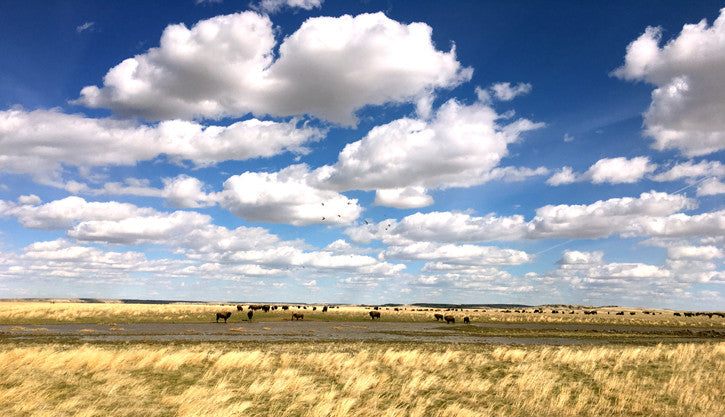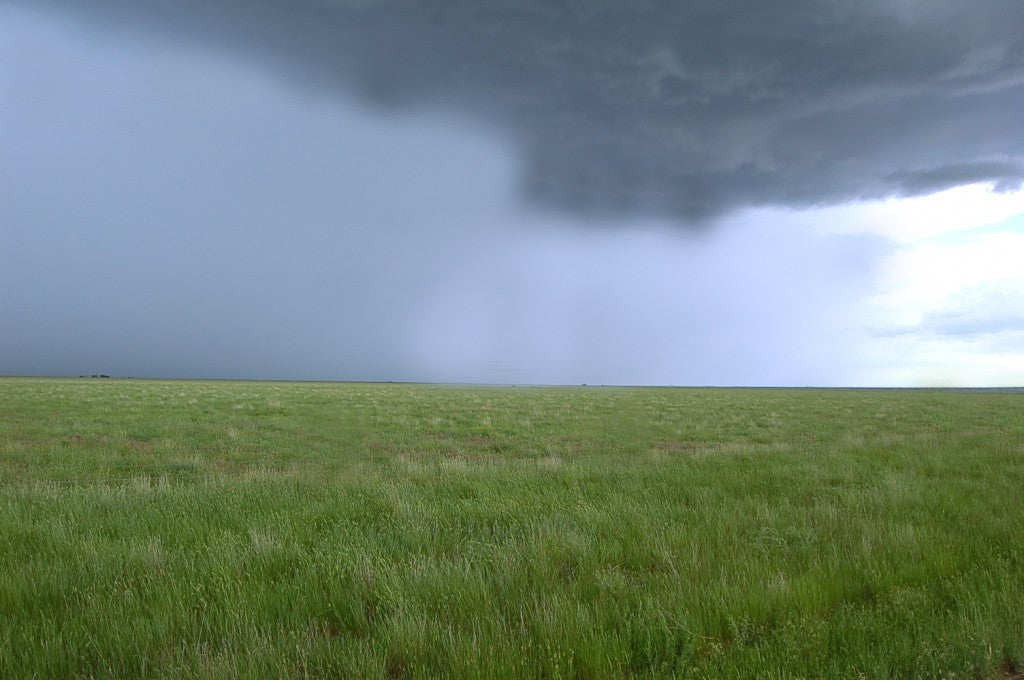As one travels the center of our country, the effort to conserve and restore the diversity and natural systems of the American Great Plains is evident. Conservation groups, government agencies, and individuals are hard at work on a thousand projects; from habitat restoration, to
But the “Big Open” is more than big. It is immense, and the systems that give it the power to lift the human spirit are complicated, indeed. In fact, when measured against the enormity of the Great Plains, the efforts to restore its vitality
It is hard to be optimistic about the chances for a meaningful and timely recovery of the Great Plains. With climate change clearly in progress, and the Plains predicted to get even drier, the chances for help, from a series of wet years, seems unlikely. With fossil fuel consumption showing no real signs of tapering off until it becomes a rare and expensive commodity; the human assault on the Great Plains seems destined to continue. National attitudes concerning our relationship to the land, show no widespread signs of turning away from headlong consumption. It is hard for me to imagine that we, as a society, have reached the peak of our mindless, arrogant binge of environmental abuse and are on the downhill slope toward a workable harmony with the natural systems of the Great Plains. It seems clear to me that, if things are ever to get better, we will have to suffer through a period of increased deterioration of the land that sustains us.

So what, you might ask, is the value of all those people
Aldo Leopold said, “The first rule of intelligent tinkering is to save all the pieces.” The intelligence of our tinkering on the Great Plains is in serious dispute, but the fact that we have tinkered with the connective tissue of the environment is a simple fact. It seems highly likely that, as with the population and fortunes of all species, an adjustment looms in the future for mankind. The ingenuity of humans that allowed their populations to exceed the carrying capacity of its range was not ingenuity at all. It was a stroke of luck called cheap oil – no more the

It would be easy to view all this as bad news for mankind, but no thinking person ever believed that population and prosperity, for any species, can increase forever. The great adjustment is not bad news – it is simply news. But there may be some good news in all this. Unlike the antelope, who are not capable of planning and so destined to destroying their habitat in the times following the boom years, there are a few humans: individuals, groups, and agencies, who have been “saving the pieces.” When the smoke of the adjustment clears, in fifty, or a hundred, or three hundred years, there may well be a forty-acre wetland with Pintails bringing off broods, there may be a garden of once pampered wild plants ready to break out onto the prairie again. There may be sections of prairie that were managed for the duration, and healthy enough to accept those plants. And there may be a little herd of free roaming buffalo ready to claim their birthright – to step through the crumbed fences and fill the void left by the deposed monarchs.
This article was first published in 2006.

27 comments
Excellent musings on the future of conservation. However, I have searched this blog for keywords (fire, wildfire, prescribed burn) and cannot find any mention of the role of fire in restoration of America’s native grassland ecosystems. Wild Idea Buffalo Co. seems uniquely positioned to help increase our nation’s understanding of fire ecology.
Your work comes across to us as so positive. Your words here, so negative. I like the positive spirit more.
Dan, oil did not give humans the ability to overpopulate. Modern medicine, especially antibiotics have caused over-population. Although we deplore overpopulation, modern meds have saved nearly all families tremendous grief, by saving the babies and children who formerly died by the score. An example: Three children died in Abe Lincoln’s family; one at three years old, then Willie at 12 or 13, and then, Tad, in his late teens. That was typical. Parents lived a tremendous amount of grief, their entire adult lives. Rather then deplore overpopulation, let’s pioneer other planets and find a decent way to feed people; get rid of fissile fuels and replace them with other kinds of energy.
Thank you Dan for reminding us why we do what we do.
My sentiments exactly!
thank you
I’ve loved your written messages for several years now and have read and own all of your books.I tell everyone you are my favorite author hope that is ok. Your talking of the grasslands and prairies of North America gives me so much pleasure because my husband and I have been there and it fills us with so much wonder to visit.Thank you Dan I’m still hoping to visit your ranch one of these times soon.God bless you and yours.
I am glad you re-posted this article, Dan. The profound and well presented message is untimely and will be pertinent for re-posting in years to come. It reminds us to cherish, support and guard “the pieces” with diligence. The understanding needed for futuristic success lies herein and must be taught. Thank you for sharing the wisdom of those with their personal gardens, forty acre havens and their small herds of Buffalo!
Beautiful essay Dan – it really picked me up today, a day that I will walk in Philadelphia to support the Paris agreement. There is hope that that one day soon we might begin to slow the degradation of our planet home. To all of the small (and large) conservation efforts out there, I thank you!
Beautifully stated, Dan. Our thanks to you, Jill, and all those working with you to show others the right way. It seems as if we have entered a phase of increased destruction of the planet. It is mindlessness run amok. Hopefully it is a final and very short phase. People like you give us hope that when this ends, we will be moving forward in a more positive, and mindful way. Many Thanks!
I’m a believer in the Great Spirit. . .our inviolate Creator. As such I am reminded continually about how humanly easy it is to sell God short. What arrogance is exercised in the name of ‘taming the planet’ reverberates within so delicate a series of balances and counterbalances over such a vast network of naturally and ethereally steadying and volatile forces that it is absurd to feature the end result of tampering with such exquisitely and miraculously worked life for shortsighted ends as anything other than sheer folly. Renewable, sustainable, awe-inspiring resource is what has made this country ripe for over-cropping, over-grazing, and over extracting of mineral wealth. The industrial overreach our nation has promulgated for the past two hundred years is finally coming home to roost in the hearts and minds of a sensitized people willing to recognize the cost to unborn generations. Our soft underbelly is beginning to feel the exposure to the onslaught, and as the next generation of crusaders to save our shores and hinterlands from the ravages of over production reaches back to grip their baton with discomfited hands, we necessarily slow our pace and watch for heroes and heroines to stride boldly on course to end the race with aplomb and restorative results. So, cheer on the youth who rise to the occasion and let our voices ring in applause for the certain knowledge that we have left the information age behind and have entered into the age of truth-telling. You go Dan. You the man.
Beautiful piece, thank you! I found home when I moved back to the southern hills after many years away. Thank you for using wise words written by my great uncle Aldo. I grew up in Burlington, Iowa and was very close to and taught many wise lessons by my grandfather Frederic Leopold, Aldo’s younger brother, Thank you for your beautiful books and incredible Wild Idea Bison. Keep it going!
Not sure if I understood Mr. Bray’s comment but it seems he thinks cattle ruin the eco system. This is certainly not true of the sandhills regions. If it weren’t for grazing cattle those areas would be an actual desert!
And I would add that in order to one day gather the pieces to aide rebirth, we much continue to teach the generations what is needed. One of the entities Dan mentions that does such a great job of teaching the generations is Prairie Plains Resource, headquartered in Aurora, Nebraska. Check out their website and their programs.
Amen.
The article is so true. How sad it is that the majority of people either don’t have a clue or just don’t care what we are doing to our planet. It’s an "all about me " world with the thought being, let the next person worry about it.
Thanks so much for all you are doing in your effort to save what is left. I for one deeply appreciate it !